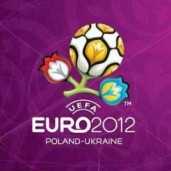In mid 2007, Poland was abuzz after receiving co-hosting rights with Ukraine for the Euro 2012 football championship. A year from the event, the country is biting its nails with key infrastructure yet to be completed.
As May came to an end, a storm drew over the Polish capital, Warsaw, and it became evident that the roof at its brand new national football stadium – built ahead of the 2012 European Championship – was not entirely waterproof.
Shortly beforehand, it had become known that the staircases at the stadium were not built to the correct specifications, and would need to be erected anew.
Such errors have caused a six-month delay, at least, in completion of the stadium as well as a leap in the costs of the project. The errors have led to a commotion between the Dusseldorf-based architects of the stadium and the company behind its construction. The situation is not ideal, to say the least.
The arena was supposed to be ready for play by May this year. All things considered, it’s now not known when it will be in a state to begin hosting matches. Euro 2012 organizers had planned to hold exhibition games at the stadium before the big event next year, such as an international friendly match between Poland and Germany scheduled for September.
But now it’s feared the stadium won’t be ready to be tested ahead of the Euro 2012 opening ceremony.
Forking out in times of crisis
The National Stadium – Stadion Narodowy in Polish – has become the largest sport-related investment in Poland’s history. The costs of the project stand at almost half a billion euros. The venue is to provide some 58,000 spectators with the most modern amenities and facilities available. There are a further 860 seats for journalists and media workers, and even more than this for VIPs.
This bodes well for the Euro 2012 tournament, but what happens when the teams, fans and journalists leave Poland? The stadium’s intended use beyond next year is still a mystery to many Poles.
Nevertheless, the outlook is not entirely negative. Just as in Warsaw, authorities in other cities and regions around Poland have attempted to frame the infrastructure investment required to host the Euro championship as a long-term investment.
This didn’t stop the liberal-conservative government of Prime Minister Donald Tusk from hitting the brakes several times – the construction phase has been overshadowed by the global financial crisis and money has been lacking left, right and center.
The citizens of Warsaw had hoped to get a second subway line out of Euro 2012 to connect the banks of the Vistula River, near the site of the stadium, to the rest of the city. The line will still be installed, they have been told, albeit a year after the tournament. There will be no new stations, though a handful of current stations will be upgraded. The city’s airport, however, will receive a new terminal and train line to the city center – the first visible signs of Euro 2012.
Chinese give up
Poland has also experienced complications with the construction of roads to the capital. The main highway connecting Western Europe to Warsaw is now interrupted by what amounts to a 50-kilometer “hole” between the city of Lodz and the capital. A Chinese company which won the tender to build the section of highway was recently unable to pay subcontractors and has said it was going to drop the contract.
Should it come to that, the Chinese firm COVEC could be liable for penalties of up to 200 million euros ($291 million). The firm in Poland says it only has around a quarter of that sum, and where the rest will come from is still unknown. It’s unclear how this will turn out, but holding a new tender process will take one thing there isn’t much of: time.
Last minute
The road linking Warsaw with Gdansk on the north coast is also not fully completed, while in the south the highway does not yet reach Ukraine, with which Poland is jointly hosting Euro 2012. Rail services offer no real alternative to this, as the train trip from the capital to Gdansk takes longer now than before World War II.
Only a new stadium in Poznan, in the west of the country, has been completed. Construction of stadiums in Gdansk and Wroclaw – also known as Breslau – is still underway. Those stadiums are to hold 44,000 spectators after a total investment of 750 million euros.
At this stage, though, it’s believed those arenas will be finished in time for the tournament next year. Perhaps serving as an encouragement for the Poles, the Greeks only managed to officially finish construction work a few hours before the opening ceremony at the 2004 Olympic Games. A minor reassurance.
Positive balance
The complications Poland must overcome are immense, but the Polish media believes the balance will still be positive at the end of the day. Much is yet to be completed, but without the European Championship the nation would have had to wait a good three to eight years longer for the delivery of such infrastructure.
The highways will be finished around a year after Euro 2012, but will serve Poles for decades. Without the championship, Poland would have had to wait another 10 years for modern stadiums, pundits say.
In all, Euro 2012 will cost Poland an estimated 22.5 billion euros, but this should not be seen as money lost. This investment will enable Poland to take a quantum leap. The outlook for the nation’s football team looks somewhat worse, however, but even here, the Poles could still spring a few surprises.



















